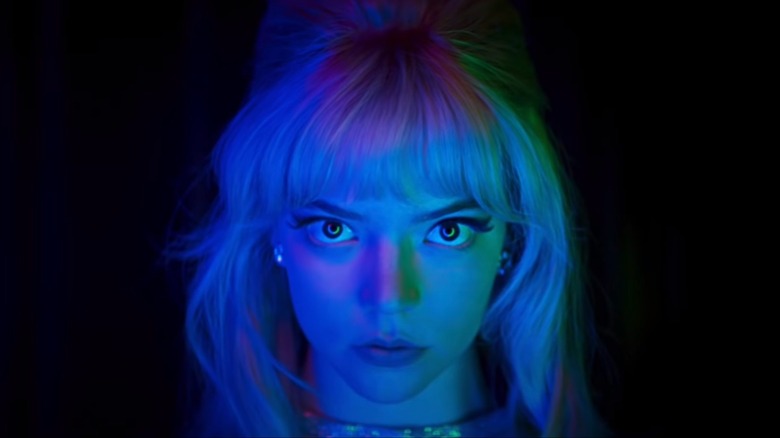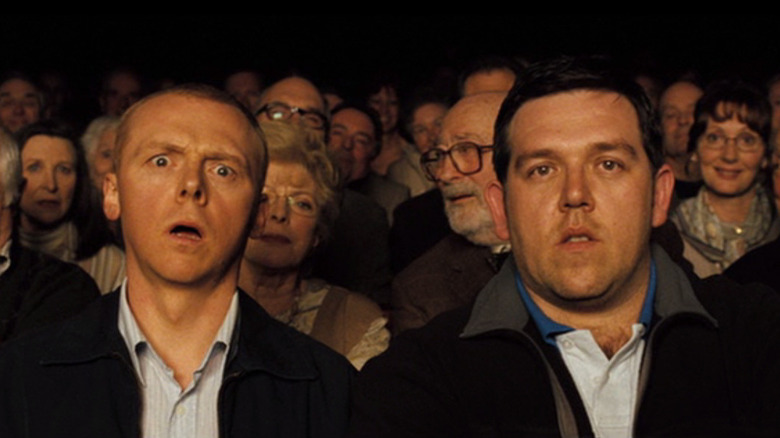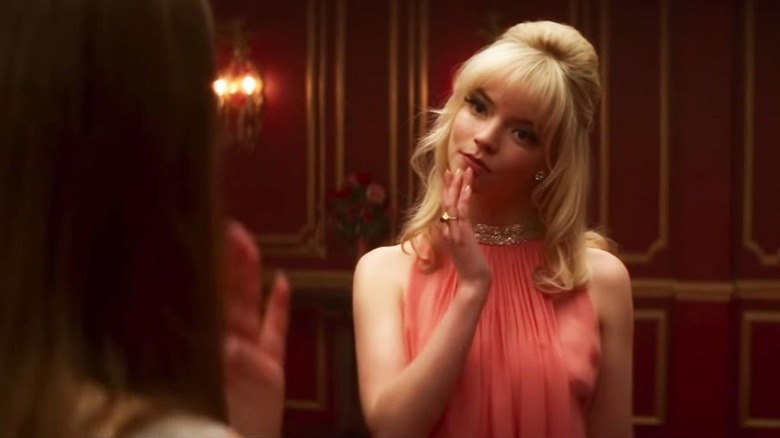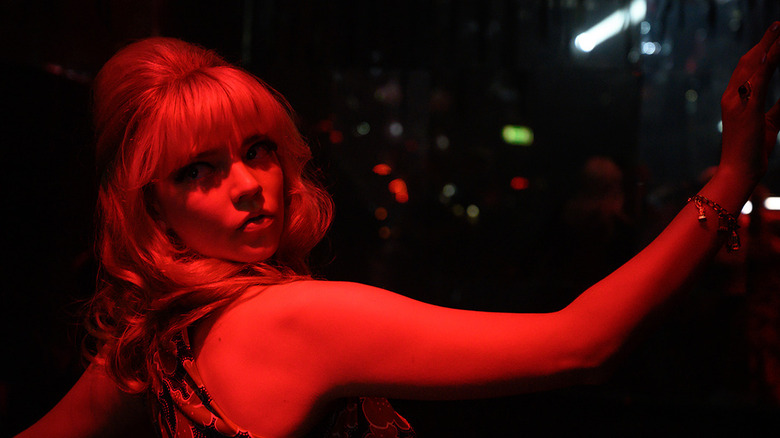Edgar Wright Shares What Last Night In Soho Has In Common With Hot Fuzz And The World's End [Exclusive]
We're all feeling a little nostalgic lately. Whether it's for "the good old days " or just for the time before the COVID-19 pandemic, most of us are longing for a time gone by. Edgar Wright's latest, "Last Night in Soho," is a horror movie predicated on the idea that nostalgia can be dangerous. Funnily enough, several of Wright's other films have dug deep into the hazards of hanging onto history: all three films in the "Cornetto Trilogy" deal with nostalgia in some way.
In an interview with /Film's Jacob Hall, Wright got candid about how nostalgia has played into each of his movies, and how "Last Night in Soho" connects thematically to "Hot Fuzz" and "The World's End."
The Web of Nostalgia Throughout Wright's Ouvre
When asked if "Last Night in Soho" was a reaction to his earlier work, Wright had a deep, thought-out answer. While his earlier work is certainly nostalgic ("Shaun of the Dead" is an homage to zombie king George Romero; "Hot Fuzz" is a tribute to action movies), he doesn't regret those movies being sentimental about their subject matter:
I mean, not directly to the films, because there's nothing I regret about those movies, and I feel the same affection for the films that we pay homage to in those movies, I feel the same affections for them now.
So if Wright's not feeling any kind of guilt or shame for the incredible levels of nostalgia in his early work, why turn around and make a film that's an allegory on the dangers of it? The director explained that the characters who had nostalgia for films weren't the ones who stuck with him:
I think the thing with this is more about... And I guess in a strange way, "Hot Fuzz" and "The World's End" do touch on some of the themes. You could say that the baddies in "Hot Fuzz" are nostalgic for the good old days, and that is what motivates their murderous impulses. And in "The World's End," Gary King is trying to recapture something that is long gone. And so, I think in a weird way, those have weighed heavy on my mind, but it's not a rebuttal to "Shaun" or "Hot Fuzz."
What About Bad Time Travelers?
Nostalgia for art is one thing, but nostalgia for a time is different. Wright had a deep attachment to 1960s London, first inspired when he was a child going through his parent's record collection. Just thinking back to the 1960s in Soho made him wish he had the ability to time travel, and he felt that maybe he had "missed out on the best it ever was." The only problem was that he kept thinking about ways that time travel could go wrong:
I would have these recurring dreams and daydream about being a time traveler, but maybe a cultural time traveler. So there's a thing of like, "Oh, I'd like to go back and just be at this gig, and be at this club, or see this film on opening weekend, or see this show." But even that, the idea that you've said, "Oh, I'd like to do this, but not that" is you're already making choices, in terms of you want to experience the good and not the bad. So that started to plague me in the sense that I started to think about it so much that I'd even start to then worry about things that literally didn't matter, because it never going to happen. A time travel machine is not going to be built in our lifetime. But I would start to think, "Well, what if I went back and I had the wrong money? And what if I went back and I had to foil an assassination, but I couldn't remember the dates?" And all those things that are nagging you about being a bad time traveler.
Clearly Edgar Wright has watched some "Star Trek," because these questions tend to pop up every time someone from Starfleet accidentally ends up in a different time period. His worries about the mundane concerns of time travel helped inspire him to keep thinking about the power of nostalgia, however, and that led him to "Last Night in Soho."
'Questioning My Own Fatal Nostalgia'
Thinking about time travel made Wright wonder why he even longed to see another time so much anyway. After all, it's a little strange to have nostalgia for a decade you never experienced. He wondered if perhaps having nostalgia for a decade was a "failure to deal with modern life," and that led him down the rabbit hole. He also noted that people tend to have nostalgia for the decade just before them, because they feel like they missed out on something:
I think a lot of people get nostalgic about the decade just before them. So I think a lot of '90s kids get nostalgic about the '80s in a way that I don't. So, I'm not quite so... I might feel differently if I had kids who I would take to something, but when there's '80s nostalgia or remakes, I'm less interested, because I remember it. And I felt like, I remember all this very vividly, so it was not so interesting to me, but I could see how it would be interesting to people who missed it, because I missed the '60s and that fascinates me. So I guess that's the thing is it's not a rebuttal against my previous movies, but it's more me questioning my own fatal nostalgia.
"Last Night in Soho" is in theaters nationwide.



